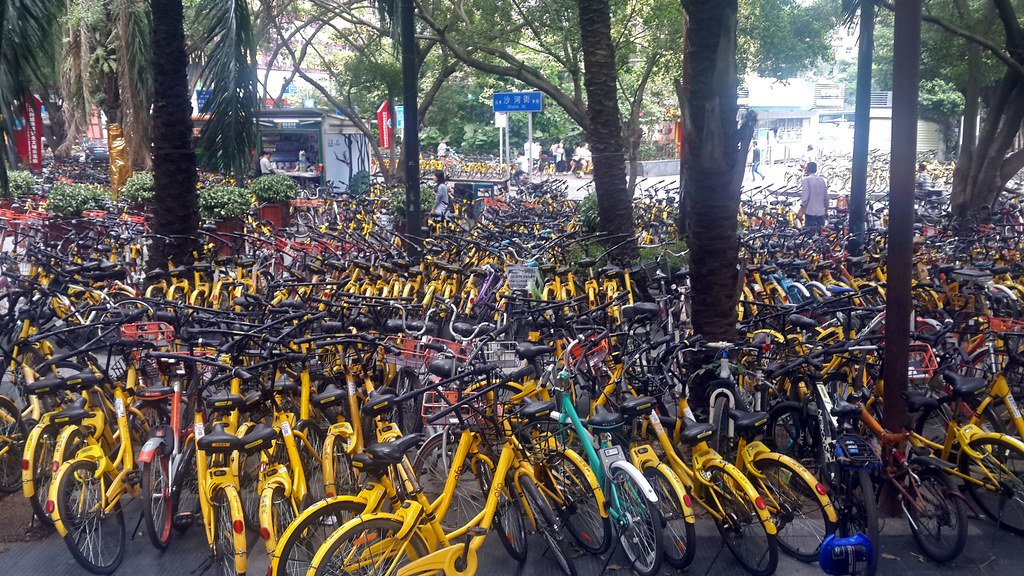Bike Sharing in China: A Comprehensive Guide for Travelers
Bike sharing in China has transformed the way both locals and tourists navigate the vast and bustling cities. With millions of shared bikes across the country, accessing affordable, eco-friendly transportation has never been easier. This guide explores everything you need to know about bike sharing in China, offering an insider’s view of the current landscape, tips for tourists, and practical advice on using the services.
Table of Contents
The Evolution of Bike Sharing in China
The bike-sharing boom in China began in 2016 with companies like Ofo and Mobike leading the way. These services quickly grew in popularity, offering dockless, GPS-enabled bikes that users could rent through mobile apps. At its peak, bike-sharing became a multi-billion-dollar industry supported by substantial venture capital investments. However, rapid expansion, unsustainable business models, and intense competition led to the downfall of many players, with Ofo and Mobike being the most notable examples.
By 2018, the bike-sharing landscape had shifted significantly. Ofo, once a market leader, collapsed under financial strain and was forced to shut down its operations, leaving a trail of abandoned yellow bikes in its wake. Mobike, acquired by Meituan in 2018, has since scaled back its operations but remains a prominent player alongside other companies like Hellobike and Didi Bike.

The Current State of Bike Sharing in China
Today, the bike-sharing industry in China is dominated by a few major players: Meituan Bikes (formerly Mobike), Hellobike, and Didi Bike. These companies have adapted to the changing market conditions by integrating with larger platforms and focusing on sustainability and user experience.
- Meituan Bikes: After acquiring Mobike, Meituan streamlined the service, integrating it into its broader ecosystem, which includes food delivery, ride-hailing, and more. The orange bikes of Mobike are still a common sight in many Chinese cities.
- Hellobike: Backed by Alibaba, Hellobike has gained a significant market share, especially in smaller cities and suburban areas. Hellobike is known for its reliable service and user-friendly app interface.
- Didi Bike: Didi, the ride-hailing giant, has expanded into bike sharing through acquisitions and partnerships. Didi Bike, which features green bikes, is another popular option in many Chinese cities.

How to Use Bike Sharing Services as a Tourist
For foreign tourists, using bike-sharing services in China is straightforward but requires some preparation. Here’s a step-by-step guide:
- Download the App: The most popular bike-sharing apps include Meituan, Hellobike, and Didi. These apps are available in English and can be downloaded from the App Store or Google Play.
- Register with an International Phone Number: You can register with your international phone number, but make sure it can receive SMS verification codes. This is crucial for setting up your account.
- Identity Verification: Upload a photo of your passport within the app for identity verification. This step is required to ensure compliance with local regulations.
- Payment Method: Bind your international credit or debit card to the app. Payment options include Alipay and WeChat Pay, both of which now support international cards. This integration makes it easier for tourists to pay for rides without needing a Chinese bank account.
- Finding and Unlocking a Bike: Open the app, locate a nearby bike on the map, and scan the QR code on the bike to unlock it. Once unlocked, you can start your ride.
- Parking and Locking the Bike: After your ride, park the bike in a designated area. Make sure to manually lock the bike to end the trip and avoid additional charges.
Tips for a Smooth Experience
- Avoid Peak Hours: During rush hours, bike availability can be limited. Plan your rides accordingly to avoid frustration.
- Choose Electric Bikes for Longer Rides: Hellobike and Didi offer electric bikes, which are ideal for longer distances, especially in extreme weather.
- Follow Local Traffic Rules: Always adhere to traffic laws and park in designated areas to avoid fines. Chinese cities enforce strict regulations on bike sharing, especially in crowded areas.

The Future of Bike Sharing in China
While the initial hype around bike sharing in China has settled, the industry remains a vital part of urban mobility. Companies have learned from the past and are now focusing on sustainable growth, better user experiences, and integration with other services. For travelers, bike sharing continues to offer an affordable and environmentally friendly way to explore Chinese cities.
With its extensive network of shared bikes and user-friendly apps, China’s bike-sharing ecosystem is well-positioned to meet the needs of both locals and visitors. Whether you’re commuting or just exploring, these services provide a unique way to experience the vibrant streets of China.









I’ve just had my first ride (very short, as I was testing the information I had received about using these machines). Few, if any, of the videos I’ve seen about this matter differentiate between ‘bikes’ and machines you sit on that move with electric power and cannot be pedalled.
The machine I used had no pedals, and could not be manually locked. I was unable to look it after use. How do I lock one of these machines?
Bike sharing in China has two locking options: one is a temporary lock, and the other is the “return” lock used when you’ve finished your ride. Try switching the app interface to your language—it might help you understand it better.